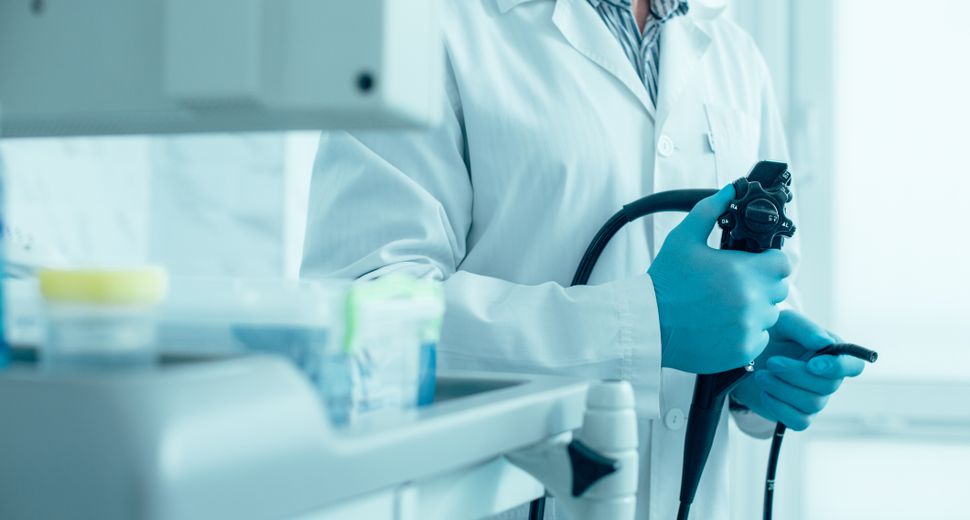
Colonoscopy
A colonoscopy is a test used to screen for colorectal cancer even before there are symptoms.
A colonoscopy allows your gastroenterologist to view the inner lining of your large intestine, which includes both your colon and rectum, to search for ulcers, polyps (precancerous growths), tumors or inflammation. A thin, flexible tube called a colonoscope is used to explore the large intestine. This tube has a small video camera attached, allowing your doctor to view the colon clearly and take video and pictures during the procedure.
If suspicious growths such as polyps are found, they can be removed during the colonoscopy procedure and tissue samples can be taken for further analysis.
A colonoscopy typically takes between 15 — 60 minutes.
Are you due for your screening colonoscopy?
If you have been putting it off or recently turned 45, now is the time to get it scheduled. Don’t wait until it’s too late! Colorectal cancer is preventable when pre-cancerous polyps are found and removed during a colonoscopy; that’s why screening is so important.
Take charge of your health and schedule your screening colonoscopy by calling 630−967−1611.
Colonoscopy Resources:
Screening vs. Diagnostic Colonoscopies: What’s The Difference
The Colonoscopy Survival Guide
Colorectal Cancer Is On The Rise — How You Can Lower Your Risk






























